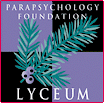 |
 |
| by Carlos S. Alvarado, Ph.D. The majority of Stevenson’s work was conducted with cases reported to him by different informants. His work was based on interviews of the experiencers and other witnesses in which he attempted to gather a description of the case and assess its evidentiality. This work was different from the emphasis some parapsychologists place on the importance of laboratory research. Stevenson was an ardent defender of both the value, and necessity of non-experimental work. In his 1968 Presidential Address to the Parapsychological Association, “The Substantiability of Spontaneous Cases,” published in 1971, Stevenson not only defended the value of case studies, but also reviewed the research conducted on human testimony. In his view, regardless of the flaws of testimony, a good case could be made for its value to establish the reality and characteristics of many of the phenomena of psychical research. In later publications he continued defending the topic. One example was an editorial entitled “Why Investigate Spontaneous Cases?,” published in 1987. As Stevenson reminded us: “The common factors of successful experiments appear to be emotion … but we can observe the effects of strong emotion much better in spontaneous cases than in laboratory experiments. The important events of life that generate strong emotions do not happen in laboratories, or not often. I am referring here to such events as serious illness, accidents, other stresses, and — above all — death” (Stevenson, 1981, p. 132). Stevenson, I. (1971). The Substantiability of Spontaneous Cases. Proceedings of the Parapsychological Association, 5, 91–128. Stevenson, I. (1981). Can we describe the mind? In W. G. Roll, J. Beloff, & J. McAllister (Eds.), Research in Parapsychology 1980 (pp. 130–142). Metuchen, NJ: Scarecrow Press. Stevenson, I. (1987). Guest Editorial: Why Investigate Spontaneous Cases? Journal of the American Society for Psychical Research, 81, 101–109. |
 |

|
 www. parapsychology. org |
||